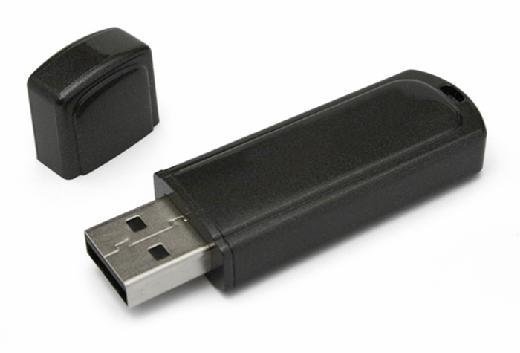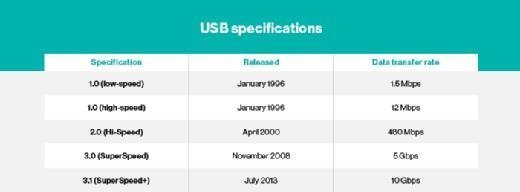USB flash drive
A USB flash drive -- also known as a USB stick, USB thumb drive or pen drive -- is a plug-and-play portable storage device that uses flash memory and is lightweight enough to attach to a keychain. A USB flash drive can be used in place of a compact disc. When a user plugs the flash memory device into the USB port, the computer's operating system (OS) recognizes the device as a removable drive and assigns it a drive letter.
A USB flash drive can store important files and data backups, carry favorite settings or applications, run diagnostics to troubleshoot computer problems or launch an OS from a bootable USB. The drives support Microsoft Windows, Linux, MacOS, different flavors of Linux and many BIOS boot ROMs.
The first USB flash drive came on the market in 2000 with a storage capacity of 8 megabytes (MB). Drives now come in capacities ranging between 8 gigabytes (GB) and 1 terabyte (TB), depending on manufacturer, and future capacity levels are expected to reach 2 TB.
The memory within most USB flash drives is multi-level cell (MLC), which is good for 3,000 to 5,000 program-erase cycles. However, some drives are designed with single-level cell (SLC) memory that supports approximately 100,000 writes.

How a USB flash drive is used also affects its life expectancy. The more users delete and write new data on the device, the more likely it will degrade.
USB specifications
There are three main USB specifications that USB flash drives can connect through: 1.0, 2.0 and 3.0. Each specification publication allows for faster data transfer rates than the previous version. There have also been several prereleases and various updates in addition to these three versions.
USB 1.0 was released in January 1996. It was available in two versions:
- USB 1.0 low-speed: Provides a data transfer rate of 1.5 megabits per second (Mbps).
- USB 1.0 high-speed: Has a data transfer rate of 12 Mbps.
Version 1.1, an update that fixed various issues in 1.0, was released in September 1998 and was more widely adopted.
USB 2.0, also known as Hi-Speed USB, was released in April 2000. It was developed by the USB 2.0 Promoter Group, an organization led by Compaq, Hewlett-Packard (now Hewlett Packard Enterprise), Intel, Lucent Technologies, Microsoft, NEC Corp. and Philips. USB 2.0 features a maximum data transfer rate of 480 Mbps. This boosted performance by up to 40 times. It is backward-compatible so USB flash drives using original USB technology can easily transition.

USB 3.0, also known as SuperSpeed USB, was introduced in November 2008. The first 3.0-compatible USB storage began shipping in January 2010. SuperSpeed USB was developed by the USB Promoter Group to increase the data transfer rate and lower power consumption. With SuperSpeed USB, the data transfer rate increased 10 times from Hi-Speed USB to 5 Gigabits per second (Gbps). It features lower power requirements when active and idle, and is backward-compatible with USB 2.0. USB 3.1, known as SuperSpeed+ or SuperSpeed USB 10 Gbps, was released in July 2013. It bumped up the data transfer rate and improved data encoding for higher throughput.
Pros and cons of USB flash drives
USB flash drives are small and light, use little power and have no moving parts. The devices, whether they are encased in plastic or rubber, are strong enough to withstand mechanical shocks, scratches and dust, and generally are waterproof.
Data on USB flash drives can be retained for long periods when the device is unplugged from a computer, or when the computer is powered-down with the drive left in. This makes a USB flash drive convenient for transferring data between a desktop computer and a notebook computer, or for personal backup needs.
Unlike most removable drives, a USB flash drive does not require rebooting after it is attached, does not require batteries or an external power supply, and is not platform dependent. Several manufacturers offer additional features such as password protection and downloadable Drivers that allow the device to be compatible with older systems that do not have USB ports.
Drawbacks to USB flash drives include the ability to handle a limited number of write and erase cycles before the drive fails, data leakage and exposure to malware. Data leakage is a problem because the devices are portable and hard to track. A security breach due to malware can occur when the device is plugged into an infected system. However, encryption and a routine scan of the USB flash drive are common approaches in protecting against a security breach.
Major vendors
Examples of USB flash drive manufacturers include Hewlett Packard Enterprise, Kingston Technology Corp., Lexar Media Inc., SanDisk, Seagate Technology, Sony Corp., Toshiba Corp. and Verbatim Americas LLC.






